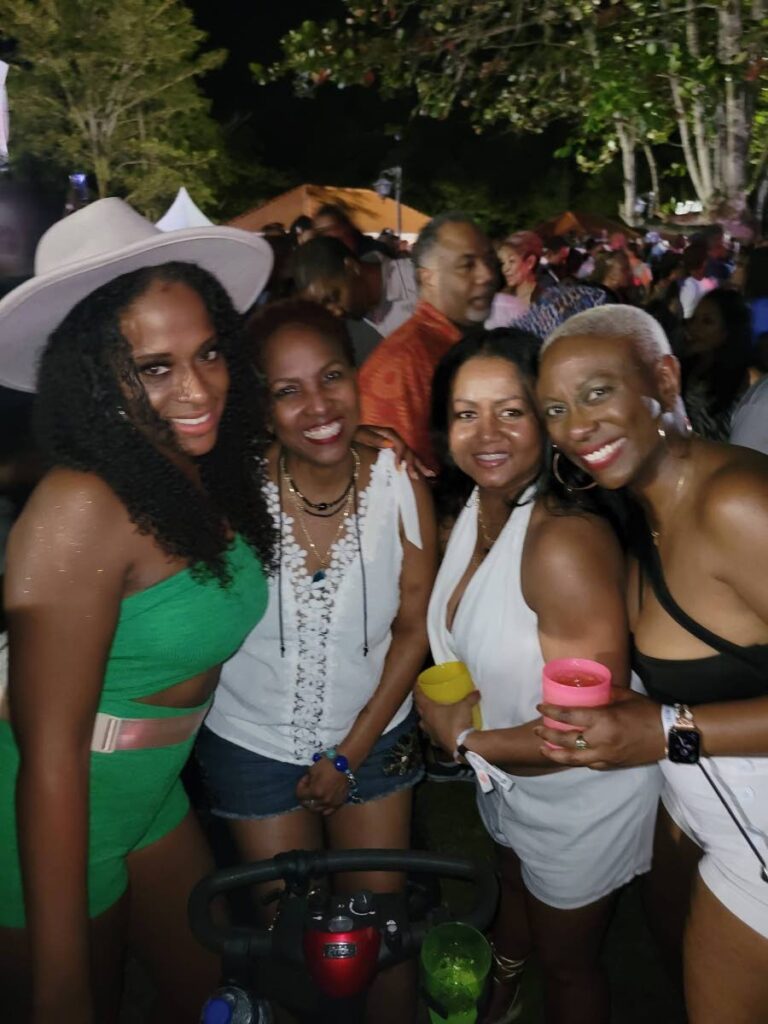A call for disability inclusion

Stacey Samuel-O'Brien
DISABILITY Pride Month is celebrated in some cities in the US during the month of July. July was selected because the Americans with Disabilities Act (ADA) was signed into law on July 26, 1990.
While Disability Pride originated in the US, it is also celebrated in many other countries. Celebrations include parades, concerts, live performances and street festivals.
Disability Pride Month is touted as a time to honour disabled people, their contributions to society, and their accomplishments. It is a way to give visibility to disabled people and highlight their right to lead fulfilling and independent lives. It also aims to remove the stigma of being disabled and improve the way people with disabilities are perceived.
Disability stigma rears its head in various ways. Societal norms seem to suggest that disabled people should “stay in their lane,” hidden and at home.
A few years ago, my friend Krista got into a very heated argument with a police officer at the gate of a party here in the US, in defence of me. We had just told him of my mobility challenges and explained my needs, to which he scoffed, “So why is she coming to a party?”
It was clear that he believed that, as a disabled person, I should be out of sight instead of trying to party like everybody else.
There are many, more subtle yet equally powerful ways that disability stigma is revealed. Examples such as buildings without wheelchair-accessible bathrooms or elevators, menus without braille or audio options, or even websites without accessible options, tell disabled people that they are not considered and not welcome in the public domain.
But staring at us when we are out running errands or performing daily activities is easily, I think, one of the most common annoyances that we have to endure. Staring, especially for no reason, makes the disabled person feel uncomfortable and/or self-conscious.
According to my disabled friend Fabi, “We’re the biggest fluorescent pink elephants in the room. We get stared at and ignored at exactly the same time."
It is not easy coming to terms with and handling being disabled, especially when it’s not expected or major lifestyle adjustments are required. Disabled people have to manage physical, psychological, financial and emotional challenges, and even after we have learned how to cope, living with a disability can be exasperating.
The stigma attached to being disabled adds to the anxiety, frustration and/or inadequacy we may feel. Being gawked at or shunned, dealing with people’s pity, or even their false cheer, can severely damage someone’s feeling of self-worth, and does nothing to help them cope.
Disabilities manifest in many different ways and disabled people do not expect everyone to understand all the challenges, so I think that it is natural for someone to be curious. As a physically disabled person, I cannot begin to understand what a blind or deaf person deals with and, I imagine, the reverse is the same. But, as a society, we need to develop better ways to acknowledge and accommodate all disabilities. Neither ignoring disabled people completely nor shining a spotlight on their differences is productive.
One of the key ways to overcome the disability stigma is by inclusion. Businesses can provide sensitivity training to their employees so they are well-equipped to address disabled patrons’ concerns, or include speakers so that instructions are oral as well as written. People can offer help and be patient when interacting with the disabled (that said, it’s important to always ask if they want help and wait for them to tell you how to help). These are ways to show disabled people that they belong and have a right to be there.
Disability Pride Month is a call for everyone to be more aware of, and become active in, disability inclusion because the truth is, a disability can affect any of us, at any given point in time. Disability inclusion will lead to a TT where disabled people function with comfort and dignity, and are regarded as whole, contributing members of the society.
Here are some “Dos” and “Don’ts” (I’ve experienced all of these over the years) for interacting with a disabled person:
Do:
Ask if we need help and listen when we tell you exactly how to help.
Speak to us directly.
Remember that we ar people and have feelings; be genuine when asking questions and try to focus on the things that we have in common.
Don’t
Assume you know what help we need and start doing so without asking (this can actually be counterproductive and helps no one).
Ignore us completely and speak to the person standing next to us, because you think they know what we need.
Look us up and down, or stare, to try and determine what might be “wrong.”
Multiple sclerosis (MS) is a debilitating autoimmune disease that affects the central nervous system.
In MS, the body's white blood cells attack the protective covering of nerve fibres. When nerve fibres become exposed, electrical messages between different parts of the body and the brain are no longer transmitted effectively. MS can lead to sensory, cognitive, digestive and muscular issues.
It is a degenerative disease for which there is no cure.

Comments
"A call for disability inclusion"